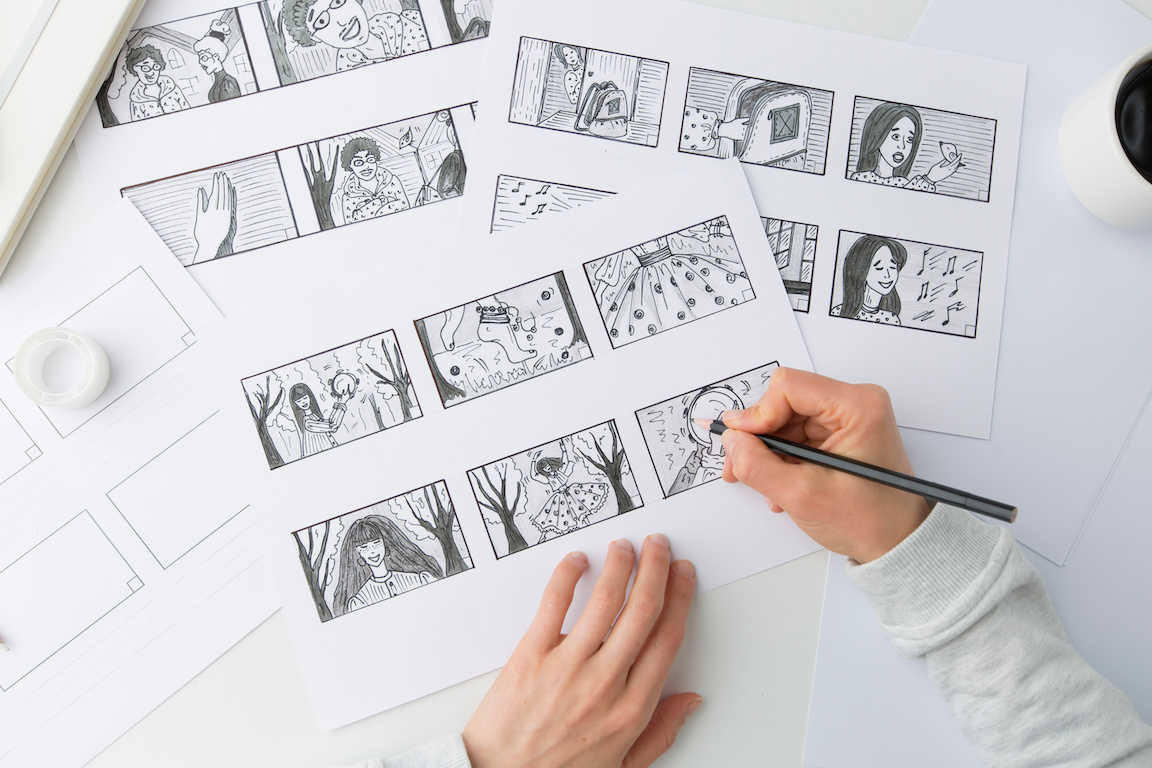Build a Storyboard
Last updated on 2024-12-31 | Edit this page
Estimated time: 12 minutes
Build a storyboard for the proposed digital experience application
In this step, you will build the storyboard for your application. Please download the storyboard template from here: https://museumsvictoria.com.au/media/6716/making-history-storyboard-tempate.pdf. There is also the option to work on an editable template on Miro if you prefer - you will need to create an account.

Here, you will have to think about your context, user and project plan as you set it up in previous steps and start creating a storyboard. A storyboard can be perceived as a graphic organisation of the scenes/sequence of the proposed application in terms of visually organising our media and access to information. The storyboard’s purpose is to outline access/initiation of the application and walk through it in terms of the information/multimedia that will be included.
Now look at the examples below:
- Chaudhsry, A. (2022). Case Study: Virtual art gallery tour app. Retrieved from: https://bootcamp.uxdesign.cc/case-study-virtual-art-gallery-tour-app-615150c81978
- Ng, C. (2019). Connecting Solo Museum Visitors. Retrieved from: https://chloenhy.github.io/museum-visitors/
Think of the following information to include in your storyboard:
- How will the user access the application?
- What will be the starting screen/scene of the application?
- How will the user access the next/following scenes and how they will access information?
- What are the media to include (images, videos, texts, 3D models, audio etc)?
- What will be the closing scene?
In the storyboard template, the first box of the storyboard will be used to sketch what is happening in each scene. The action box is dedicated to the description of what is happening in each scene. In the narration/caption box, you can fill in a phrase/message/blurb as it will appear to the user and lastly, the music/sound effect box can provide some information about the sound/s which accompany the information provided on each scene/screen (if present).
The most important thing to remember when designing a storyboard is to be creative, work as a team and produce/test many drafts which can help you to decide about the final visual organisation of the proposed application.
